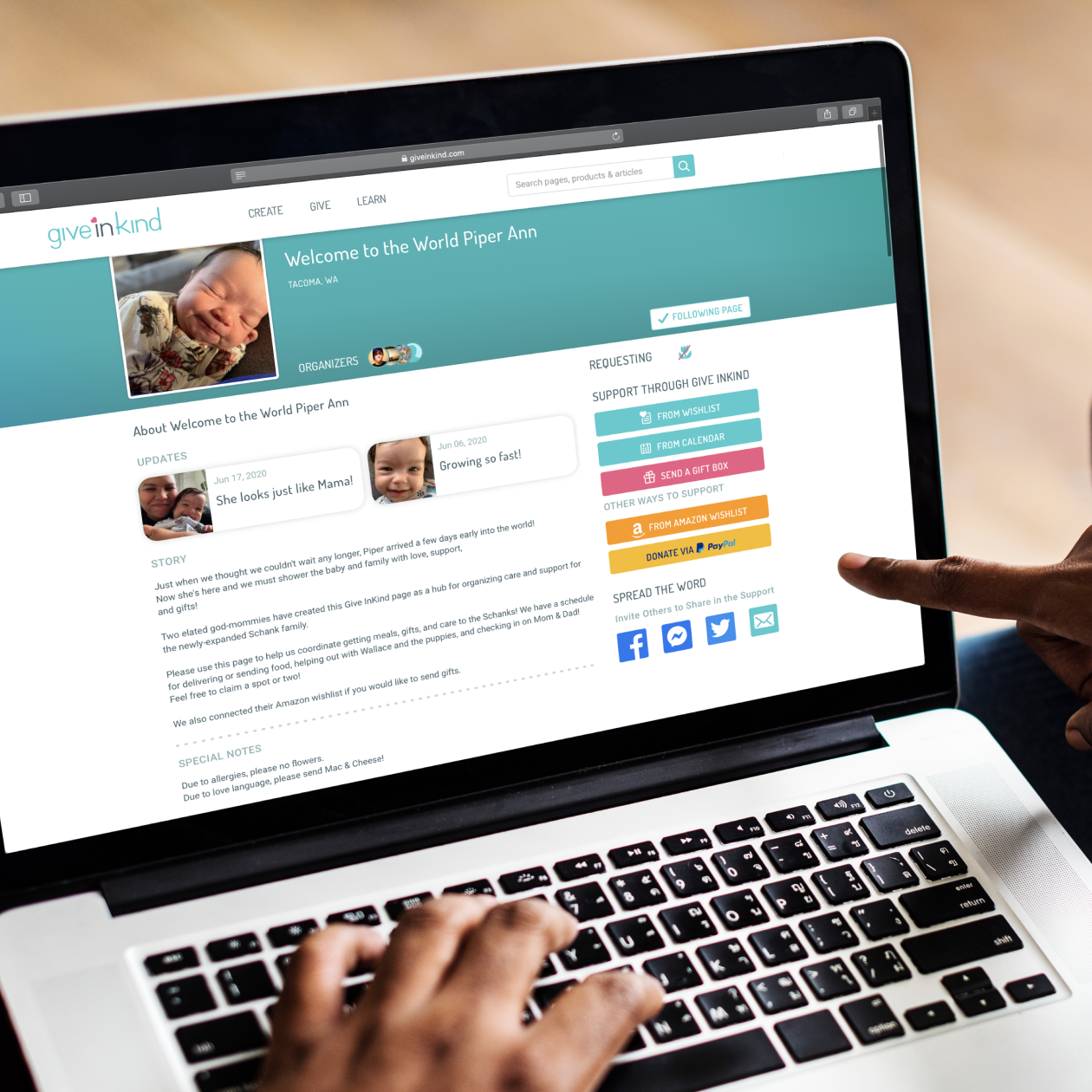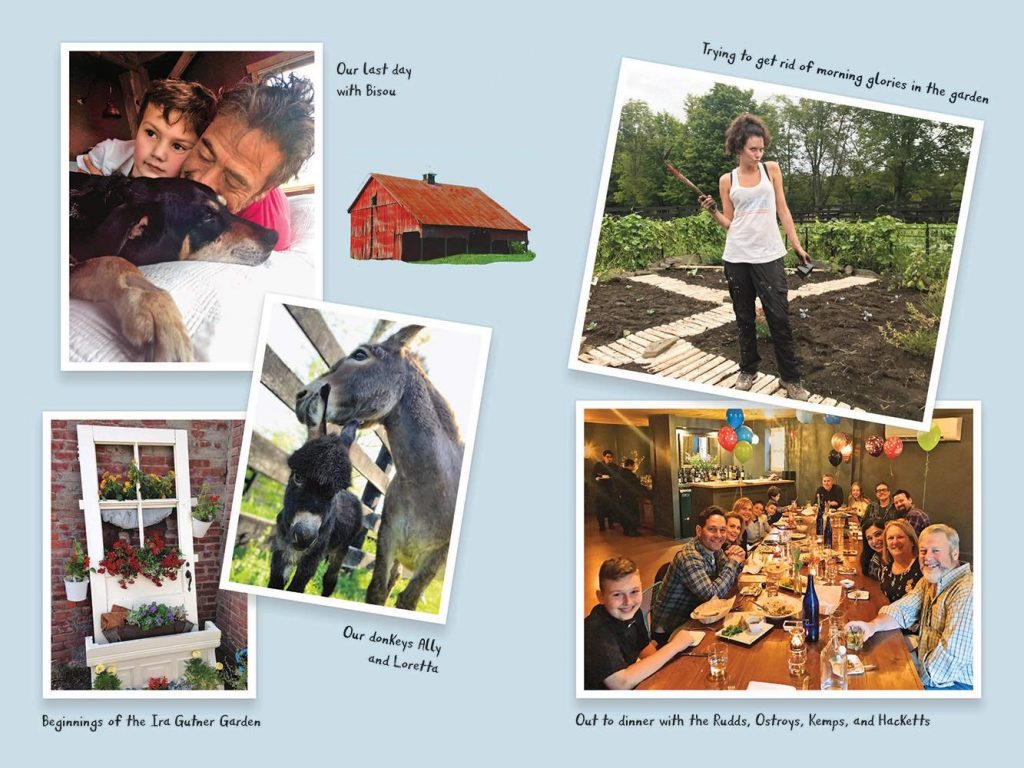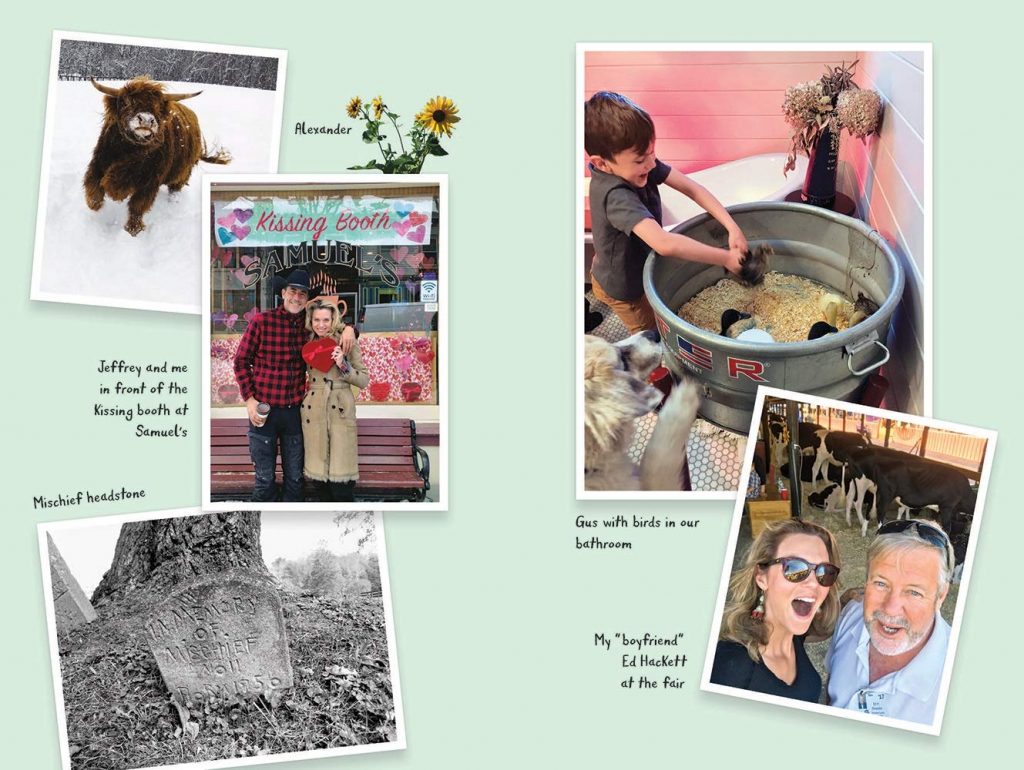Give InKind’s Care Calendar helps answer the central question of how to give or receive support. In this case, we look at how to set up a support page for a military family. Remember that the necessary support will depend on the individual circumstances of a specific family. This guide is intended only to frame ideas in broad strokes and to demonstrate the flexibility of the Give InKind Care Calendar.
Getting Started
Begin by understanding the type of help that is needed. Is a family being moved to a different military base? Is a parent active-duty service person being deployed overseas? Is an active duty combatant returning home after a deployment? Are there children in the family unit? Start by sitting down and talking either to a member of the recipient family or to a person close to them. Once a situation has been defined, a care calendar can be created and shared. Remember that pages can reflect all situations – from supporting a state-side parent to supporting a returning veteran – and everything in between. (Take a look at a Sample Give InKind Support Page for a Military Family.)
Care Calendar
Managing the unique challenges of military families takes a village. Add as many items to the Care Calendar as necessary. These items can be customized and are pertinent to the logistics of moving, to managing a household without a partner present for long periods, or to the reality of life after combat injury. Military parents sometimes comment that no matter how many “fun days” and military discounts exist, that the specific worries and concerns they face can be challenging given the immediate relevance of world affairs on their lives.
- Food: If an active duty military parent is deployed, the parent at home will need some extra help. Meals and groceries are always tremendously helpful. Gift cards, in particular, are helpful – they mean a stop for dinner after baseball practice. (No shopping, no dishes.) In providing a little extra food love, remember to consider food allergies, preferences, etc.
- Childcare: If there are children to consider, you can easily build that into the Care Calendar. Offering to take someone to something enables a parent at home to catch up on things there. For non-military families who befriend military families, take the time to understand how the rhythm of their family life differs from that of civilian life. Find the ways that you are positioned to be most helpful – and offer to step in.
- Pet Care: Are there pets to care for? If so, see how to address this need.
- Home Services: Add calendar events for things that a parent may not know how to do, or who would not be able to do without someone else there. We are talking about removing leaves from gutters, helping to identify services they may not have needed before arriving in a new region (snow removal).
- Other: “Other” is the ultimate catch-all category. This is a great way to create opportunities for connections. Plan a drinks-on-the-front-porch party. Designate an evening to a Ladies Night video call for mom.
Fundraising
The fundraising section can be beneficial for unexpected expenses. Ask whether extra cash would be useful. If there is such a need, simply enable the fundraising button on your Give InKind page and connect your PayPal or GoFundMe account.
Wishlist
The Give InKind Wishlist is another opportunity for others to meaningfully support a quarantined family with a new baby. Browse Give InKind’s curated list for suggested items. When you see an item that could be helpful, use the “+” icon to add to your Wishlist.
You may also add an existing Amazon Wishlist to your Give InKind page for items that may be leftover from their registry.
Communication Preferences
Use Give InKind’s do-not-disturb section to let others know about the family’s communication preferences. Keep in mind that these preferences can be easily turned on or off as a situation changes.
- Phone Calls: How do the parents like to communicate – a phone call or text? Do they love FaceTime or WhatsApp? (Note: Make sure their phone plans cover as much digital as possible as they do not want to drop a call from a loved one overseas.)
- Visitors: Depending upon the situation, visitors may be great helpers, childcare providers, etc. (Whether or not you enable this option will depend upon the situation.)
- Flowers: Whether you enable this option will depend upon the specific situation. If a family is packing to move? No. If an enlisted person is returning home? Possibly. Consider the situation and then decide whether it makes sense to ask your recipient.
Updates
Add unlimited updates to keep friends and family informed. This is a great place for a designated page manager to keep family and friends up to date or for the recipient to “blog” or “journal” their experience if they wish to do so. A family that has been given a new base assignment or living arrangement can send pictures of their journey. Or, a stateside parent may use updates to ask for specific kinds of support (last-minute Halloween target run, hot glue refill sticks). Add as many updates as you or the parents like to keep friends and family up to date. Create your Give InKind Support Page here.
If you have any further questions, visit Give InKind’s Help Center or view our helpful articles about support for our military families.





